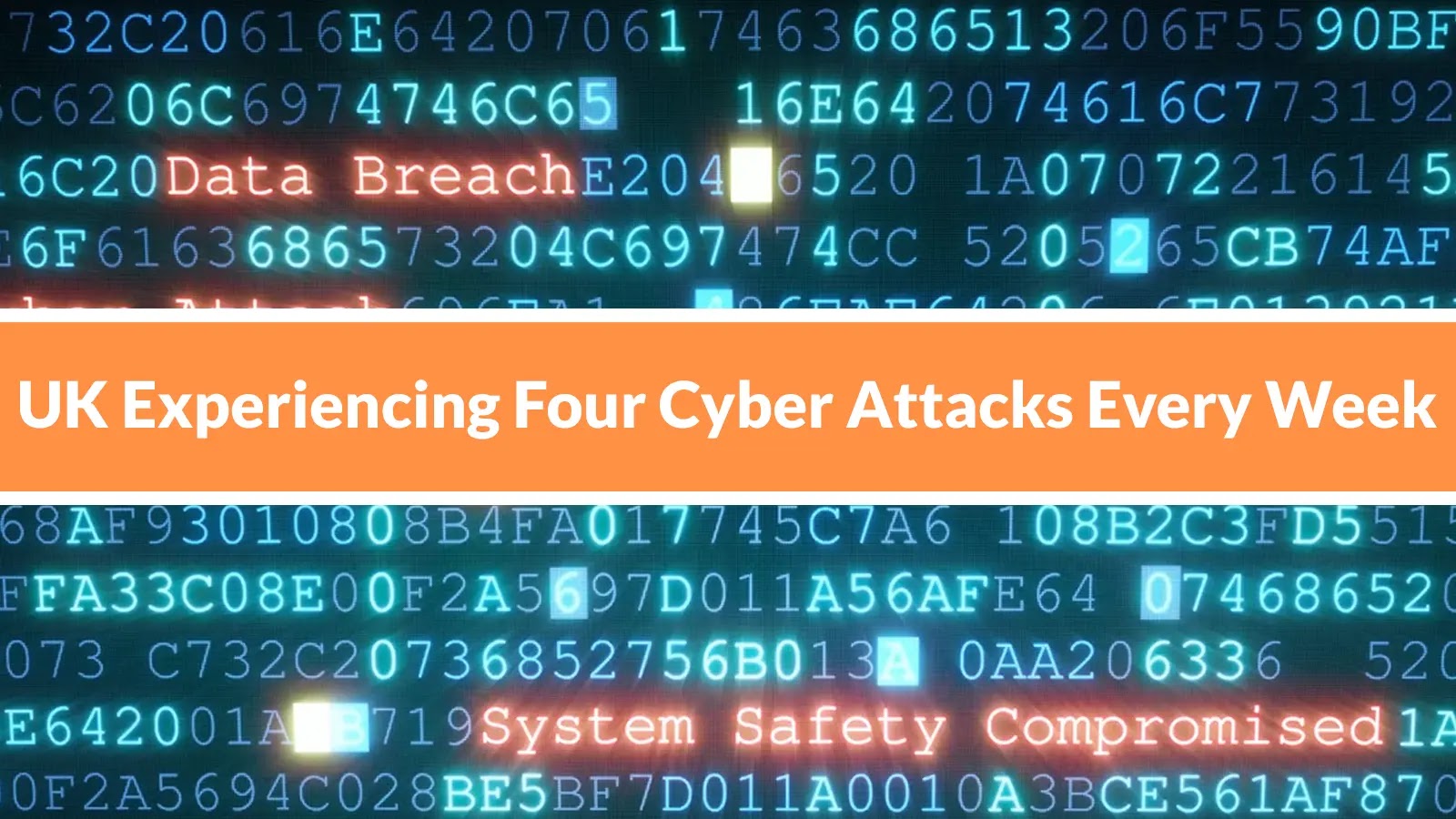The United Kingdom is confronting an unprecedented surge in cyber threats, with the National Cyber Security Centre (NCSC) reporting an average of four ‘nationally significant’ cyber attacks each week. This alarming trend underscores the escalating complexity and frequency of cyber incidents targeting the nation’s critical infrastructure, government systems, and private sector networks.
Surge in Cyber Incidents
In the twelve months leading up to August 2025, the NCSC managed 204 nationally significant incidents, more than doubling the 89 attacks recorded in the previous year. Notably, 18 of these incidents were classified as ‘highly significant,’ indicating their potential to severely disrupt essential services and infrastructure. This marks an almost 50% increase from the prior year and continues a three-year upward trend in cyber threats.
Over half of the 429 incidents handled by the NCSC during this period required national-level coordination, highlighting the systematic nature of these threats against UK interests. A substantial portion of these attacks originated from Advanced Persistent Threat (APT) actors, including nation-state operatives and sophisticated criminal organizations.
Evolving Threat Landscape
NCSC analysts have observed an increase in the complexity and persistence of these threat actors, who demonstrate advanced capabilities in targeting critical infrastructure, government systems, and private sector networks. The potential impact of these attacks spans the UK’s national security apparatus, economic systems, and essential service providers.
Dr. Richard Horne, NCSC Chief Executive, emphasized that cyber security has evolved into a matter of business survival and national resilience. He urged business leaders to take immediate action, noting that hesitation represents a fundamental vulnerability that attackers readily exploit.
Government Response and Industry Collaboration
In response to the escalating threat, the UK government has taken direct action by sending official correspondence to chief executives and chairs of major UK businesses, including all FTSE 350 companies. This coordinated approach aims to establish cyber resilience as a board-level responsibility and foster collaboration between government and private sector entities.
The NCSC has also launched the Cyber Action Toolkit, specifically designed to assist small organizations in implementing foundational security controls against common threats. Additionally, the Cyber Essentials certification scheme is being promoted, offering automatic cyber liability insurance for qualifying UK organizations with annual turnover below £20 million. This initiative creates financial incentives for proper security implementation across the business landscape.
Recent Cyber Incidents Highlighting the Threat
Several recent cyber incidents underscore the severity of the current threat landscape:
– Healthcare Sector Attacks: In June 2025, a cyber-attack on Synnovis, a National Health Service (NHS) pathology provider, led to the publication of over 380GB of sensitive data, including patient information and financial records. The attack severely impacted blood transfusion and testing capabilities, resulting in the postponement of over 1,000 operations and more than 2,000 appointments. ([cybersecuritynews.com](https://cybersecuritynews.com/nhs-hospital-attack/?utm_source=openai))
– Retail Sector Breaches: The ransomware group DragonForce claimed responsibility for cyber attacks targeting major UK retailers, including Co-op, Marks & Spencer, and Harrods. Co-op confirmed a significant data breach affecting its membership database, with hackers accessing and extracting data containing information on current and past members. ([cybersecuritynews.com](https://cybersecuritynews.com/uk-retail-stores-attacked/?utm_source=openai))
– Critical National Infrastructure Threats: The NCSC has issued warnings about Russian-aligned groups targeting the UK’s critical national infrastructure. These groups have evolved over the past 18 months, showing a strong ideological alignment with Russia’s geopolitical interests, particularly since the onset of Russia’s invasion of Ukraine. Their primary motivation appears to be disruption and destabilization rather than financial gain. ([cybersecuritynews.com](https://cybersecuritynews.com/ncsc-warns-russian-hackers/?utm_source=openai))
Legislative Measures and Law Enforcement Actions
In a landmark decision, the UK government has announced comprehensive measures to tackle ransomware attacks. Public sector organizations and critical national infrastructure operators are now prohibited from paying ransom demands to cyber criminals. This strategic shift aims to disrupt the lucrative business model that drives APT groups and ransomware-as-a-service operations. ([cybersecuritynews.com](https://cybersecuritynews.com/uk-bans-ransomware-payments/?utm_source=openai))
Law enforcement agencies have also made significant strides in combating cybercrime. The National Crime Agency (NCA) arrested four individuals suspected of orchestrating sophisticated cyber attacks against major UK retailers. The coordinated operation targeted a cybercriminal group allegedly responsible for breaching the digital infrastructure of Marks & Spencer, Co-op, and Harrods. ([cybersecuritynews.com](https://cybersecuritynews.com/four-hackers-arrested-by-uk-police/?utm_source=openai))
The Path Forward
The escalating cyber threat landscape necessitates a multifaceted approach involving government intervention, industry collaboration, and public awareness. Organizations across all sectors must prioritize cyber resilience, implement robust security measures, and foster a culture of vigilance to safeguard against the ever-evolving cyber threats facing the UK.



